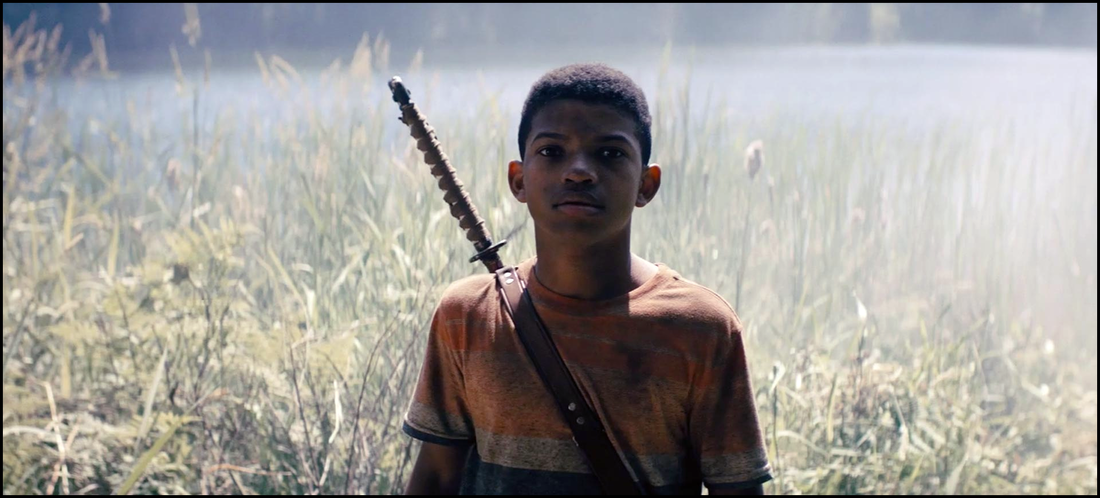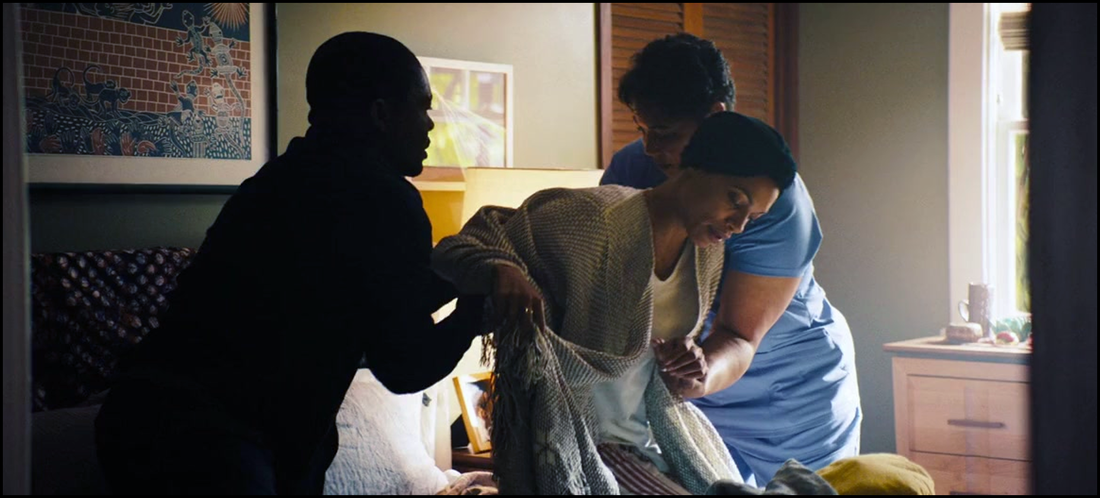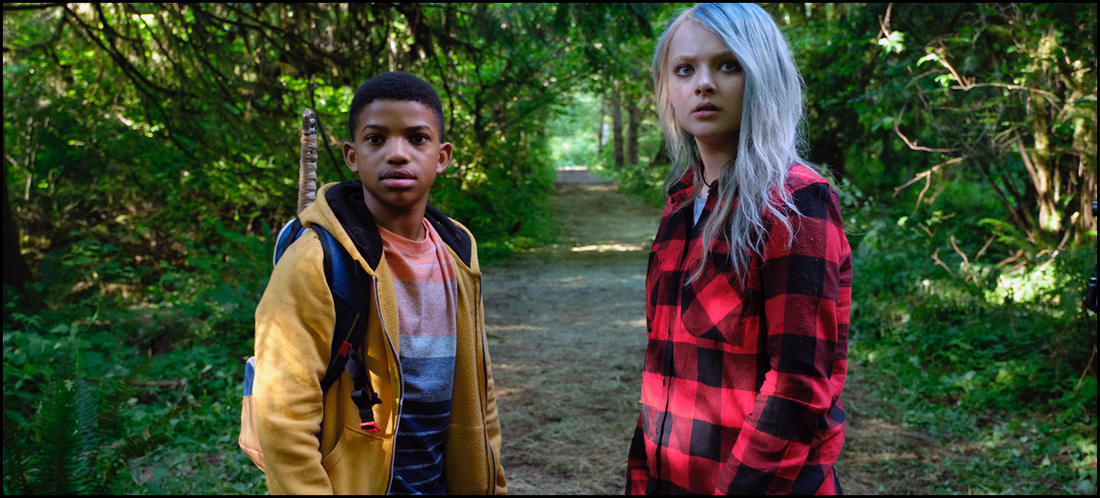In other words, consider a film like Steven Spielberg’s E.T. – The Extra-Terrestrial.
Made in the early 1980’s, the Science Fiction flick is classic Spielberg: set in suburban America, a group of precocious, wide-eyed, and curiously good-looking kids find themselves their own ‘fish out of water’ in the shape of an alien botanist innocently abandoned by its own kind. All E.T. wants to do is to be re-united with its people, so it joins up with these children not only to fill the void left in his ‘heartlight’ but also find a means to ‘phone home’ for help.
Arguably, E.T. remains one of Spielberg’s best films for a whole lot of reasons.
First, the director fashions his tale with glorious-looking shots which serve to capture the innocence of youth, framing our world for this space traveler with a decidedly ‘alien’ perspective. Second, everyone involved with the picture works to ground the feature with an emotional, relatable core; when a character feels pain, then the audience shares in that pain, giving greater dimension to even the simplest moments in the tale. Lastly, the script moves efficiently and realistically (well, as much as possible, given its circumstances) through its own stages of grief to the euphoria of achievement, reminding the audience that no journey is without its own reward.
To be honest, moviegoers love this formula. They’ve repaid visions like E.T. and others of its era by continuing to support them in the guise of repeated ticket purchases throughout the decades since their initial release. What’s not to love? When a flick can harken back to simpler days with such beauty and grace, the film is more of a personal experience than it is merely ninety minutes of shadows and fog up on the silver screen. It’s easy to see why today’s filmmakers have little interest in building a new wheel when they can merely reshape a contemporary script into something that looks like E.T. and film that, hoping for success.
Alas, when you fail to follow the formula, you get beautiful cotton candy like The Water Man: it might look good, smell divine, and taste delicious … but it’ll still rot your teeth if you don’t brush it off soon after.
From the product packaging:
“Gunner sets out on a quest to save his ill mother by searching for a mythic figure who possesses the secret to immortality, the Water Man. After enlisting the help of a mysterious local girl, Jo, they journey together into the remote Wild Horse Forest – but the deeper they venture, the stranger and more dangerous the forest becomes. Their only hope for rescue is Gunner’s father, who will stop at nothing to find them.”
In many respects, The Water Man isn’t so much a film about the hidden magic of uncovering a local urban legend as it is an honest coming-of-age experience for a young man whose mother is dying from an all-too-worldly affliction, leukemia. Gunner (played with solid conviction by young Lonnie Chavis) strives to ‘do the right thing’ when he learns that there may be some secret cure out there that modern science has missed. Like so many young protagonists before him when the adults of the picture fail, he commits to finding this so-called Water Man, stealing the cure by hook or by crook, and saving his mom’s life in the process.
While director-and-star David Oyelowo’s film tries hard to wring a sense of wonder out of such dire circumstances, the chief problem as I see it is that – unlike those films of the 80’s he harkens back to – there’s absolutely no magic here.
Sadly, The Water Man is just that – a local legend – so he exists only in the minds of those who’ve kept the legend alive. Gunner’s quest – as a consequence of that reality – ends up only putting himself, his accomplice Jo (Amiah Miller), and his father in mortal jeopardy: a raging wildfire is slowly consuming Wild Horse Forest, and they very nearly perish in the last reel except for a screenwriting convention that requires ‘feel good’ movies to end on a high note (meaning that they escape). While father and son are drawn closer together – and Jo, one of cinema’s youngest con artists, is rewarded with a new foster family – mom (Rosario Dawson) never escapes her cruel fate.
Where’s the wonder in that?
Because screenwriter Emma Needell’s story stays anchored to reality, what purpose did all those magical moments ultimately serve? Their moments of childhood depicted in a tale that ends with a very adult message: there is no magic … except what you can imagine. Sure, much of the film is a nice call back to the days when youthful exuberance offered youngsters an escape from the sometimes grim existence that is the real world, but The Water Man’s sleight-of-hand here is utterly meaningless as no Holy Grail awaits Gunner and Jo in the final reel. While their mission isn’t entirely without reward (i.e. Gunner and dad grow closer, Jo is afforded a way out of her own tragic circumstances), what about mom? Wasn’t this all done to rescue her? Why is her prize simply a good family meal in the last scene?
Well, that’s because reality wins out in the end.
The magic we find remains only what we put into a life lived. Perhaps something this depressing – the inevitable loss of childhood – probably should’ve dialed back all of the Fantasy elements here and the heart-tugging moments there while instead focusing on Gunner’s acceptance that life is short, mom’s condition is (largely) incurable, and sometimes you just have to make the best with what life gives you in the time that you are given. He’s becoming an adult in an adult’s world, and grief – however world-changing – is part of that journey. Alas, Needell’s script gives the boy no moment of such realization; as a result, I found all of it empty.
Meh. Mildly recommended. Honestly, I find it very hard to get excited about anything related to The Water Man. It isn’t as if the feature doesn’t have some merits; rather, it’s that the merits are too small and too far between to truly warrant calling them out for recognition. No matter how one tries to ratchet up interest in such a bland yet well-made affair, I find it hard to dismiss the fact that it’s an entirely passable affair. Calling up nostalgia for 80’s era filmmaking (which appears to be the goal) works only for so long; at some point, Water Man needed to rise up and tell its own story … and it never does. Nice work by the young’uns, but they deserved a better script.
In the interests of fairness, I’m pleased to disclose that the fine folks at RLJE Films provided me with a Blu-ray screener of The Water Man (2020) by request for the expressed purposes of completing this review; and their contribution to me in no way, shape, or form influenced my opinion of it.
-- EZ




 RSS Feed
RSS Feed